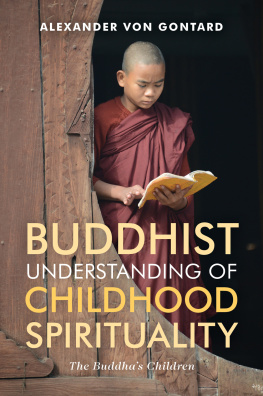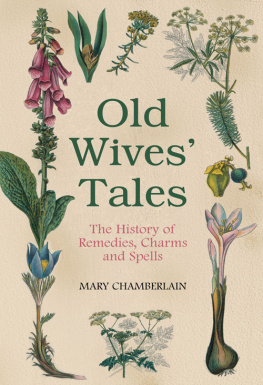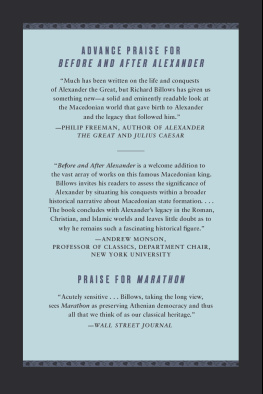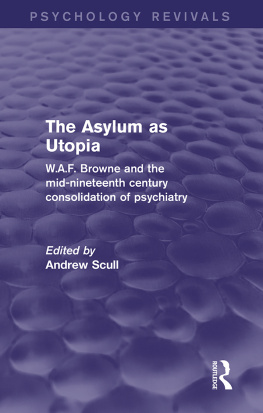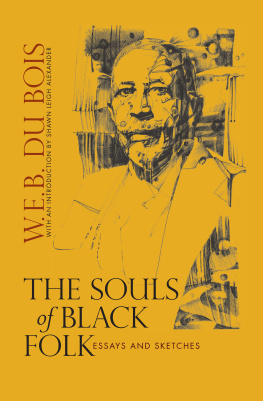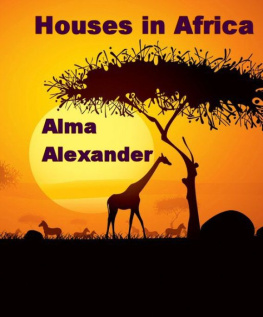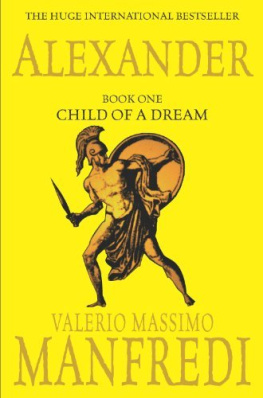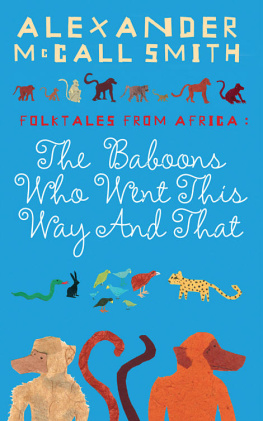Title: The Child and Childhood in Folk-Thought Studies of the Activities and Influences of The Child Among Primitive Peoples, Their Analogues and Survivals in the Civilization of To-Day
Author: Alexander F. Chamberlain
Release Date: April, 2005 [EBook #7966] [Yes, we are more than one year ahead of schedule] [This file was first posted on June 7, 2003]
Edition: 10
Language: English
THE CHILD AND CHILDHOOD IN FOLK-THOUGHT
STUDIES OF THE ACTIVITIES AND INFLUENCES OF THE CHILD AMONG PRIMITIVE PEOPLES, THEIR ANALOGUES AND SURVIVALS IN THE CIVILIZATION OF TO-DAY
THE CHILD AND CHILDHOOD IN FOLK-THOUGHT (THE CHILD IN PRIMITIVE CULTURE)
BY ALEXANDER FRANCIS CHAMBERLAIN M.A., PH.D.
TO
HIS FATHER AND HIS MOTHER
THEIR SON
Dedicates this Book
"Vom Vater hab' ich die Statur,
Des Lebens ernstes Fhren;
Vom Mutterchen die Frohnatur
Und Lust zu fabulieren."Goethe.
PREFATORY NOTE.
The present volume is an elaboration and amplification of lectures on "The Child in Folk-Thought," delivered by the writer at the summer school held at Clark University in 1894. In connection with the interesting topic of "Child-Study" which now engages so much the attention of teachers and parents, an attempt is here made to indicate some of the chief child-activities among primitive peoples and to point out in some respects their survivals in the social institutions and culture-movements of to-day. The point of view to be kept in mind is the child and what he has done, or is said to have done, in all ages and among all races of men.
For all statements and citations references are given, and the writer has made every effort to place himself in the position of those whose opinion he records,receiving and reporting without distortion or alteration.
He begs to return to his colleagues in the University, especially to its distinguished president, the genius of the movement for "Child-Study" in America, and to the members of the summer school of 1894, whose kind appreciation of his efforts has mainly led to the publication of this work, his sincerest gratitude for the sympathy and encouragement which they have so often exhibited and expressed with regard to the present and allied subjects of study and investigation in the field of Anthropology, pedagogical and psychological.
A. F. CHAMBERLAIN
CLARK UNIVERSITY,
WORCESTER, Mass., April, 1895.
CONTENTS.
I. CHILD-STUDY
II. THE CHILD'S TRIBUTE TO THE MOTHER
III. THE CHILD'S TRIBUTE TO THE MOTHER (Continued)
IV. THE CHILD'S TRIBUTE TO THE FATHER
V. THE NAME CHILD
VI. THE CHILD IN THE PRIMITIVE LABORATORY
VII. THE BRIGHT SIDE OF CHILD-LIFE: PARENTAL AFFECTION
VIII. CHILDHOOD THE GOLDEN AGE
IX. CHILDREN'S FOOD
X. CHILDREN'S SOULS
XI. CHILDREN'S FLOWERS, PLANTS, AND TREES
XII. CHILDREN'S ANIMALS, BIRDS, ETC.
XIII. CHILD-LIFE AND EDUCATION IN GENERAL
XIV. THE CHILD AS MEMBER AND BUILDER OF SOCIETY
XV. THE CHILD AS LINGUIST
XVI. THE CHILD AS ACTOR AND INVENTOR
XVII. THE CHILD AS POET AND MUSICIAN
XVIII. THE CHILD AS TEACHER AND WISEACRE
XIX. THE CHILD AS JUDGE
XX. THE CHILD AS ORACLE-KEEPER AND ORACLE-INTERPRETER
XXI. THE CHILD AS WEATHER-MAKER
XXII. THE CHILD AS HEALER AND PHYSICIAN
XXIII. THE CHILD AS SHAMAN AND PRIEST
XXIV. THE CHILD AS HERO, ADVENTURER, ETC.
XXV. THE CHILD AS FETICH AND DIVINITY
XXVI. THE CHILD AS GOD: THE CHRIST-CHILD
XXVII. PROVERBS, SAYINGS, ETC., ABOUT PARENTS, FATHER AND MOTHER
XXVIII. PROVERBS, SAYINGS, ETC., ABOUT THE CHILD, MANKIND, GENIUS
XXIX. PROVERBS, SAYINGS, ETC., ABOUT MOTHER AND CHILD
XXX. PROVERBS, SAYINGS, ETC., ABOUT FATHER AND CHILD
XXXI. PROVERBS, SAYINGS, ETC., ABOUT CHILDHOOD, YOUTH, AND AGE
XXXII. PROVERBS, SAYINGS, ETC., ABOUT THE CHILD AND CHILDHOOD
INDEX TO PROVERBS
XXXIII. CONCLUSION
BIBLIOGRAPHY
SUBJECT-INDEX TO SECTION A OF BIBLIOGRAPHY
SUBJECT-INDEX TO SECTION B OF BIBLIOGRAPHY
INDEX I.AUTHORITIES
INDEX II.PLACES, PEOPLES, TRIBES, LANGUAGES
INDEX III.SUBJECTS
CHAPTER I.
CHILD-STUDY.
Oneness with Nature is the glory of Childhood; oneness with Childhood is the glory of the Teacher.G. Stanley Hall.
Homes ont l'estre comme metaulx,
Vie et augment des vegetaulx,
Instinct et sens comme les bruts,
Esprit comme anges en attributs.
[Man has as attributes: Being like metals,
Life and growth like plants,
Instinct and sense like animals,
Mind like angels.]Jehan de Meung.
The Child is Father of the Man.Wordsworth.
And he [Jesus] called to him a little child, and set him in the midst of them.Matthew xviii. 2.
It was an Oriental poet who sang:
"On parent knees, a naked, new-born child,
Weeping thou sat'st, while all around thee smiled;
So live, that, sinking in thy last, long sleep,
Calm thou mayst smile, while all around thee weep,"
and not so very long ago even the anthropologist seemed satisfied with the approximation of childhood and old age,one glance at the babe in the cradle, one look at the graybeard on his deathbed, gave all the knowledge desired or sought for. Man, big, burly, healthy, omniscient, was the subject of all investigation. But now a change has come over the face of things. As did that great teacher of old, so, in our day, has one of the ministers of science "called to him a little child and set him in the midst of them,"greatest in the kingdom of anthropology is assuredly that little child, as we were told centuries ago, by the prophet of Galilee, that he is greatest in the kingdom of heaven. The child, together with woman, who, in so many respects in which the essential human characteristics are concerned, so much resembles him, is now beyond doubt the most prominent figure in individual, as well as in racial, anthropology. Dr. D. G. Brinton, in an appreciative notice of the recent volume on Man and Woman, by Havelock Ellis, in which the secondary sexual differences between the male and the female portions of the human race are so well set forth and discussed, remarks: "The child, the infant in fact, alone possesses in their fulness 'the chief distinctive characters of humanity. The highest human types, as represented in men of genius, present a striking approximation to the child-type. In man, from about the third year onward, further growth is to some extent growth in degeneration and senility.' Hence the true tendency of the progressive evolution of the race is to become child-like, to become feminine." (Psych. Rev. I. 533.)
As Dr. Brinton notes, in this sense women are leading evolutionGoethe was right: Das Ewig-weibliche zieht uns hinan



